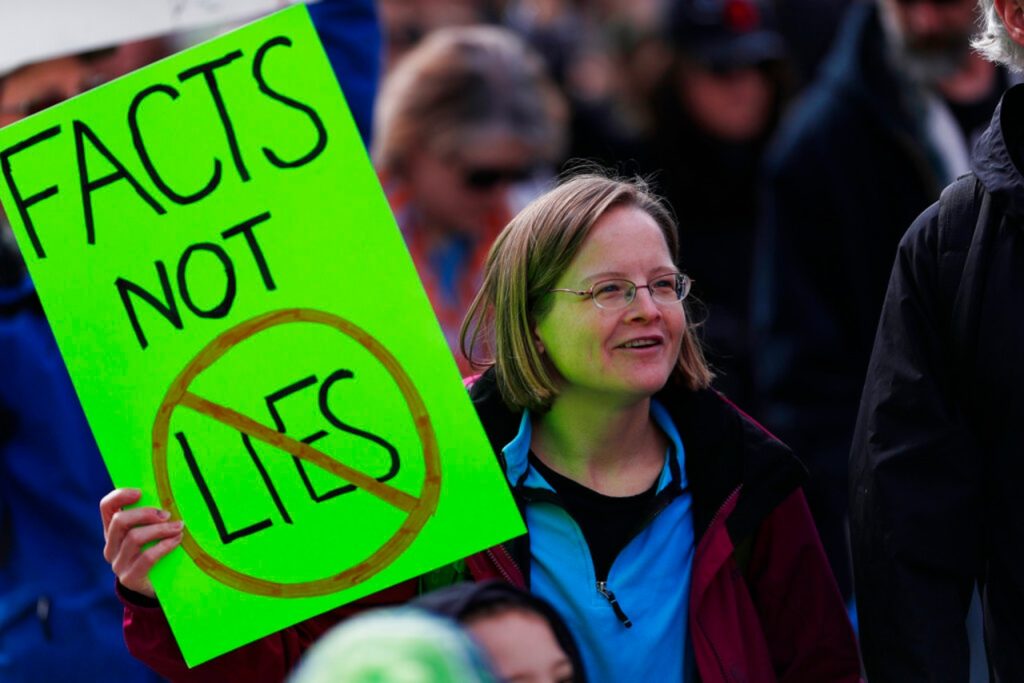Listen to the article
In an era dominated by artificial intelligence advancements and widespread misinformation, many Americans find themselves uncertain about where the First Amendment draws the line on falsehoods. Despite broad protections for free speech—including some forms of false information—most citizens remain unclear about the constitutional boundaries of their speech rights.
Recent data from the Freedom Forum reveals a concerning knowledge gap: only 10% of Americans could correctly identify all five freedoms protected by the First Amendment without assistance. This lack of understanding comes at a critical time when discerning fact from fiction has never been more challenging or important.
The growing sophistication of AI technology raises novel questions about constitutional protections. Are deepfake videos of celebrities protected as free speech? What legal protections exist for someone who unknowingly spreads harmful misinformation online? Does the First Amendment shield those who deliberately distribute falsehoods about government institutions across social platforms?
These questions are increasingly relevant as the digital landscape evolves. The boundaries of First Amendment protections in these scenarios may surprise many Americans who haven’t closely studied constitutional law or precedent.
The Freedom Forum’s “Where America Stands” survey highlighted how these concerns are influencing civic participation. Prior to the November 2024 election, 56% of respondents indicated that First Amendment issues would impact their voting decisions. However, the research revealed a generational knowledge gap, with younger Americans demonstrating less understanding of these constitutional protections than their older counterparts.
This knowledge deficit comes at a particularly sensitive moment in American civic life. As the country navigates polarizing political landscapes and increasingly sophisticated disinformation campaigns, understanding the protections and limitations of free speech becomes essential for informed citizenship.
To address this knowledge gap, the First Amendment Academy has developed interactive courses and weekly quizzes designed to help Americans explore how these constitutional rights affect everyday life. These educational resources aim to make complex legal concepts accessible to the general public through engaging, straightforward content.
The Academy represents a collaborative effort between several organizations committed to civic education: the nonpartisan Freedom Forum, Arizona State University, and NEWSWELL. Their educational platform focuses specifically on deepening public understanding of the First Amendment’s five core freedoms: religion, speech, press, assembly and petition.
The initiative comes amid growing concerns about information literacy in a digital age where distinguishing credible sources from misinformation requires increasingly sophisticated critical thinking skills. By providing accessible education on constitutional principles, the Academy hopes to equip Americans with the knowledge needed to navigate complex information environments.
Constitutional scholars have long noted that the First Amendment offers broad but not unlimited protection for speech—including false statements in many contexts. The Supreme Court has consistently held that certain categories of speech, such as defamation, fraud, true threats, and incitement to imminent lawless action, fall outside constitutional protection.
As AI tools make fabricated content increasingly difficult to detect, understanding these nuances becomes more crucial for responsible citizenship. The First Amendment Academy’s educational efforts aim to clarify where these boundaries exist and how they apply to emerging technologies and communication platforms.
By increasing public knowledge about these fundamental constitutional protections, educators hope to strengthen democratic discourse and help citizens become more discerning consumers and producers of information in an increasingly complex media environment.
Fact Checker
Verify the accuracy of this article using The Disinformation Commission analysis and real-time sources.




8 Comments
I appreciate the thoughtful framing of this article. There are no easy answers, but an informed public discourse is crucial as we work to uphold free expression while also addressing the very real harms of coordinated misinformation campaigns.
This is a complex issue at the intersection of free speech and misinformation. The First Amendment protects a wide range of speech, but there are limits, like inciting violence or falsely yelling ‘fire’ in a crowded theater. Navigating the boundaries as technology advances will be an ongoing challenge.
Interesting to see the data on public understanding of First Amendment freedoms. Improving civic education could help people make more informed decisions about what information to trust online. But reining in misinformation raises tricky free speech concerns.
You’re right, balancing free speech with combating misinformation is a delicate balance. Clear guidelines and robust public discourse will be key as we grapple with these evolving issues.
This is a timely and important topic. The First Amendment is a cornerstone of democracy, but its application in the digital age raises novel challenges. It will be fascinating to see how the courts and policymakers evolve their approaches to balance free speech and public welfare.
Misinformation and disinformation can have serious consequences, so finding the right balance is critical. While the First Amendment provides broad protections, there may be room for narrowly-tailored restrictions on the most egregious and harmful falsehoods. An ongoing dialogue will be key.
The growing sophistication of deepfakes and other AI-generated content really complicates the legal landscape. It’s not always clear when something crosses the line from protected speech into harmful misinformation. Careful analysis and updating of laws will be needed.
Agreed, the rapid pace of technological change is outpacing our legal frameworks in many ways. Policymakers will need to stay nimble and thoughtful as they navigate these complex issues.